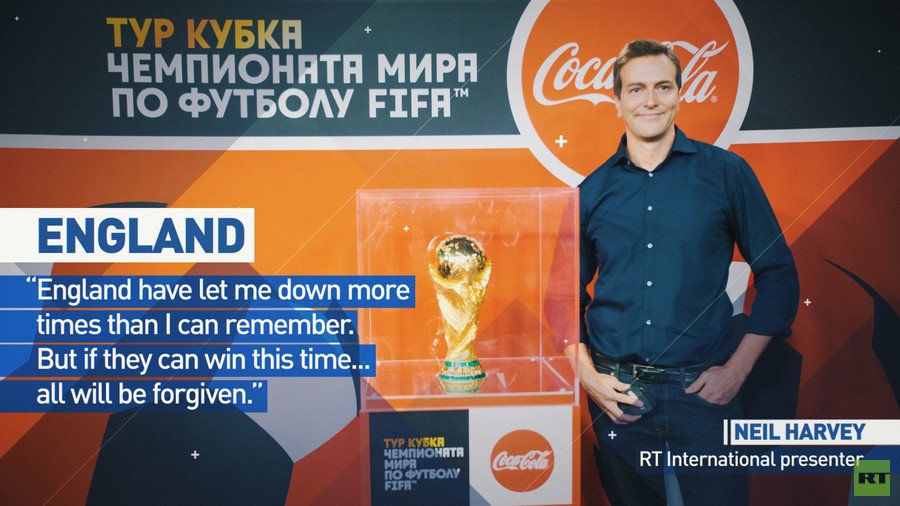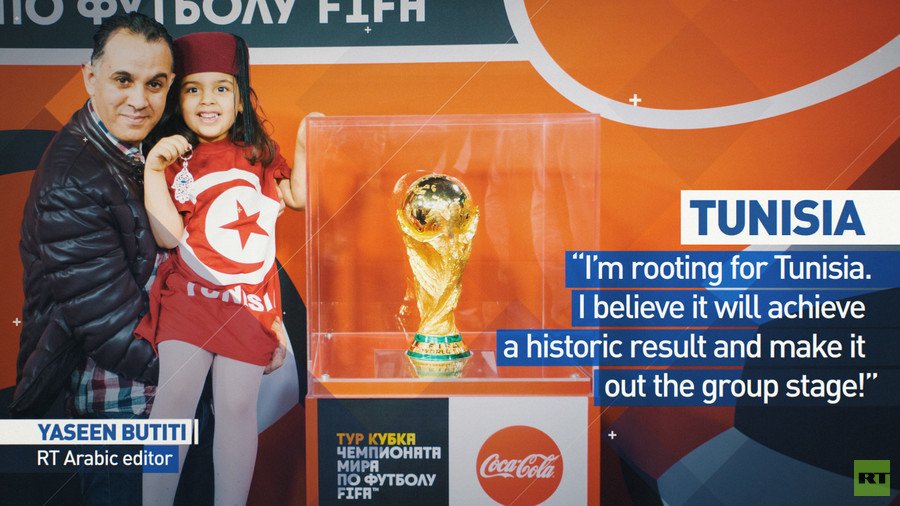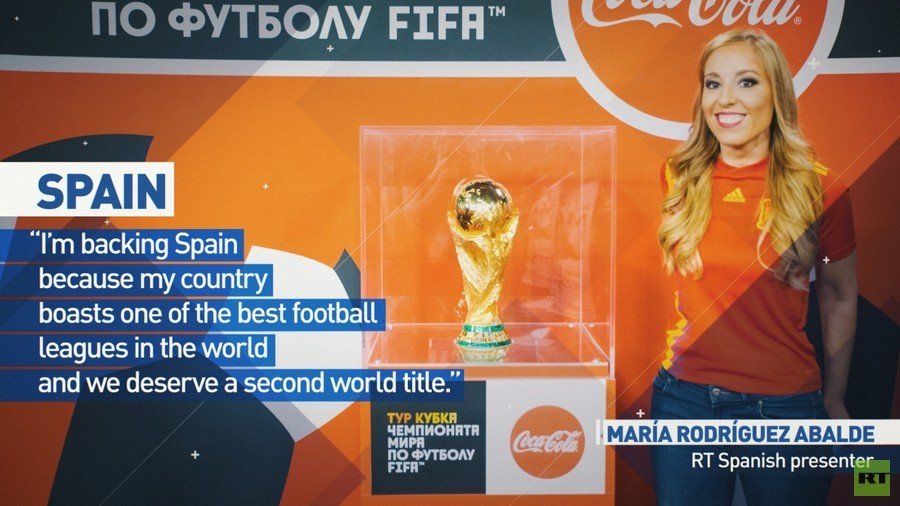News
Golden guest - World Cup trophy lands at RT HQ in Moscow ahead of Russia 2018 (VIDEO)
The official World Cup trophy landed at RT HQ in Moscow on Tuesday after returning to Russia following a leviathan 143,000 km journey across 50 countries worldwide, making it the longest of its kind in history.
It's the moment about which every footballer dreams. From young kids kicking around a ball on the street, to those at the summit of world football, everyone who has ever laced on a pair of boots dreams of laying their hands on football’s ultimate prize: the World Cup trophy.
The coveted cup landed at RT studios in the Russian capital on Tuesday, after completing a tour that also saw it travel across 24 Russian cities from Kaliningrad, the country’s most westerly city, to Vladivostok in Russia’s Far East, as well as each of the 11 Russia 2018 host cities.
The tour, organised by Coca-Cola, began nine months ago on September 9 at the newly-renovated Luzhniki Stadium, the venue for the World Cup 2018 opening game and final.
There, FIFA chief Gianni Infantino and Russian president Vladimir Putin were on hand to launch the tour, which also doubled as Luzhniki’s grand opening.
Oleg Piletsky, Head of Public Affairs and Communications at the Coca-Cola system in Russia, visited the RT studio to explain some of the particulars of the tour, as well as touching tales of fans realizing a dream of their own in catching a glimpse of the trophy, and marking it in their own special way.
They included a young man in Kaliningrad who made a marriage proposal to his girlfriend, that Piletsky admitted “brought tears to my eyes”, newlyweds making a post-alter pitstop to grab a trophy selfie, and even a 60-year-old man weeping at the sight of the cup in Perm.
Piletsky also revealed one of the tour's main objectives was to shine the spotlight on those with special needs and disabilities, creating an atmosphere of inclusion through football.
“It’s promoting inclusivity around the world with the help of football, with the help of the trophy tour,” Piletsky said.
“The same way we want as many people as possible to see the trophy, we also want as many people as possible to be part of the game, not to be excluded.
“So we are using the trophy tour to promote inclusivity in Russia, to give an opportunity to people with special needs, with mental disabilities, to be also part of the society and highlight the issue of social isolation of people with special needs. We are bringing them to the trophy, giving them the opportunity to interact with this magnificent prize.

“But also during the trophy tour, in many cities in Russia and especially the host cities, we organised the ‘unified matches’, where football stars and public personalities and people with special needs played in one team showcasing that they deserve to be as one team, as one society, joined by a love of football and by this magnificent FIFA World Cup Russia,” he added.
In Moscow, some RT team members made a special effort to greet the golden guest in jerseys of their home nations which are participating in the tournament, including Mexico, Spain, Uruguay, Argentina, and Tunisia.

Of course, none were able to touch the trophy, which was encased in a glass cabinet. FIFA regulations dictate only heads of state and the World Cup winners themselves can get their hands on the 18 carat solid gold trophy, with the winning team receiving a gold-plated bronze duplicate for keeps.
That means even Lionel Messi, a losing finalist with Argentina at the last World Cup in 2014, and current European champion Cristiano Ronaldo, have never laid so much as a finger on the trophy.

That could all change of course on July 15, when the new world champions will be crowned after the final at Luzhniki, bringing the curtain down on the world’s biggest football festival.
Lothar Matthaus, who lifted the trophy as captain of West Germany in 1990, joined numerous dignitaries and former sports stars in officially welcoming the trophy back to Russia on Sunday. The tour officially ends on June 7 - one week before hosts Russia kick off the tournament against Saudi Arabia on June 14.